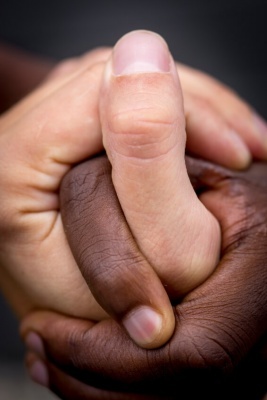Definition of organic solidarity
Miscellanea / / November 13, 2021
By Javier Navarro, in Dec. 2015
 The sociology studies the behavior of society as a whole and one of the aspects that is analyzed is that of solidarity. We all have a general idea of what solidarity means, since we are part of a group of individuals who interact and, consequently, we help others and are in turn helped. Thus, solidarity is synonymous with help, collaboration, cooperation and, ultimately, of any action that implies a benefit oriented to others.
The sociology studies the behavior of society as a whole and one of the aspects that is analyzed is that of solidarity. We all have a general idea of what solidarity means, since we are part of a group of individuals who interact and, consequently, we help others and are in turn helped. Thus, solidarity is synonymous with help, collaboration, cooperation and, ultimately, of any action that implies a benefit oriented to others.
Durkheim, the father of sociology
Sociology emerged as discipline academic in the late nineteenth century. Durkheim, Marx and Weber are the main thinkers who promoted this branch of knowledge. However, the one who consolidated this knowledge in a systematic way was the French Emil Durkheim. For him, sociology must explain social facts in their totality, since social facts are independent of concrete individuals.
Solidarity as a social fact for Durkheim
The social ties of primitive groups were based on religion and nature, and the ties that were formed were creating a feeling of solidarity. However, Durkheim argues that the
evolution and technological progress gave rise to a new social phenomenon: the division of labor. This meant that each individual engaged in his own activity and acquired a certain degree of independence. However, individuals interacted with others and were therefore partially dependent on others. In this way, a new concept of solidarity was created. Both modern and ancient societies have articulated a sense of solidarity, which is a mechanism for keeping society as a whole cohesive.Mechanical solidarity and organic solidarity in Durkheim
If a group of individuals is in a territory of similar people and within the framework of common traditions we would be talking about mechanical solidarity. On the contrary, when a collectivity is made up of very different individuals, the helping relationships between them create an organic solidarity.
 Organic solidarity is typical of non-traditional societies. Those who practice this form of solidarity seek consensus between different social groups. It must be borne in mind that in a modern society there are notable differences between individuals and for there to be cohesion, it is necessary to reach agreements between the different organs social. For Durkheim, organic solidarity is often accompanied by a weakening of the conscience collective.
Organic solidarity is typical of non-traditional societies. Those who practice this form of solidarity seek consensus between different social groups. It must be borne in mind that in a modern society there are notable differences between individuals and for there to be cohesion, it is necessary to reach agreements between the different organs social. For Durkheim, organic solidarity is often accompanied by a weakening of the conscience collective.
In organic solidarity, each section of the company or group acts as an independent body that has its own functioning internal. However, the autonomy of each body does not prevent the development of collaborative activities and exchange between the set of social groups.
Photos: iStock - Joel Carillet / JimmyLung
Topics in Organic Solidarity